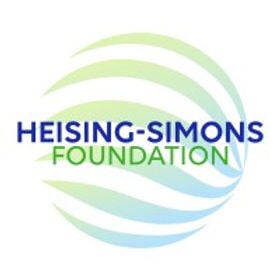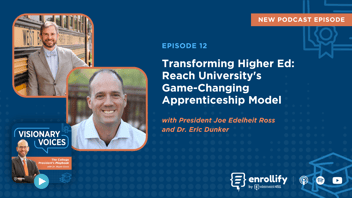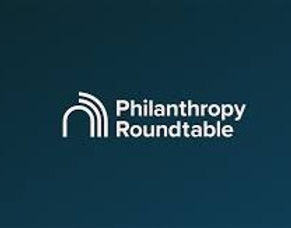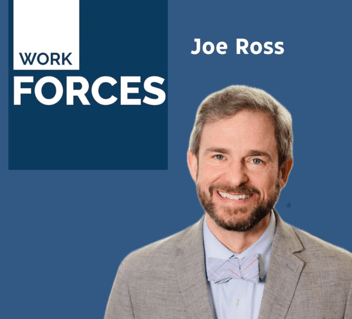As headlines loom highlighting the extent of post-pandemic learning losses, it is clear that what was once a systemic socio-economic achievement gap has now become a nationwide K-12 epidemic.
Black and Hispanic fourth grade students were most impacted by these declines, highlighting on-going racial and socio-economic class disparities.
So the question is: how do we fix the problem - for good?
In a recent
ABC News broadcast, Dr. Peggy Carr, Commissioner of NCES, shared “It’s clear we all need to come together—policymakers and community leaders at every level—as partners in helping our educators, children, and families succeed."
In part of coming together, teacher preparation programs play a vital role in equipping educators with the mathematical skills, instructional techniques, and confidence needed to successfully address learner needs, both in the short- and long-term.
This is most critical in the training of elementary school teachers, who are expected to be proficient in math as multi-subject educators, and for teachers in urban, rural, and low-income communities, who traditionally lack specialization.
Beginning in 2021, Reach University, our nation’s leader in job-embedded teacher degree apprenticeships, prioritized an investment in high-quality mathematics and computational thinking (CT) curricula to achieve teacher “math confidence.” This initiative is funded in part by the Heising-Simons Foundation and its efforts to develop confident and competent early math educators.
More commonly known as the “Math + CT Program,” the curricula is composed of an intensive model intended to address candidate (Reach undergraduate) gaps in mathematical preparation and math anxiety. The program includes:
“Semester of Math”: Offering all candidates a 15-hour singular subject semester, focusing entirely on intensive math and computational concepts to increase content knowledge, develop pedagogical skills for the math classroom, and directly apply learnings to the candidate’s job-embedded professional experience.
Courses include algebra, geometry, data analysis and probability, in addition to computational thinking and computer science foundational elements, such as algorithm design, abstraction, decomposition, and pattern recognition.
The “Math + CT Program” moves beyond supplemental professional learning to embed high-impact math foundational skills and pedagogy, alongside social-emotional factors critical to math confidence such as inclusion and belonging, within the degree experience. Not only is Reach a leader in integrating math confidence into the teacher prep experience, but also across accredited institutions of higher education to integrate an intensive, mandatory STEM curricula into its Liberal Arts B.A.
-
Short-Term Benefit: This model provides educators with mathematical and CT instructional know-how to apply to all curricular areas, including in bridging learning losses.
-
Long-Term Benefit: Graduates of Reach’s program become teachers who have the skillset to equip a generation of rural, urban and low-income K-12 students with STEM skills and confidence required for the future of work and lifelong learning.
Beyond building a qualified, diverse teacher pipeline for rural, low-income and urban public school districts, Reach University also offers a working and scalable solution to ensure paraeducators and teachers hold critical mathematical and STEM know-how to support post-pandemic and future learning gaps, resulting in a more equitable educational experience for all learners.
From Dr. Woodard, Reach’s Mathematics Professor and Faculty Lead:
“Reach University candidates learn to develop their own mathematical reasoning, communicate math ideas verbally and in writing, and solve problems related to everyday life. They understand that math is about creativity, that mistakes and questions help them learn, and that developing a deep conceptual understanding of math concepts is much more important than being fast at math,” shared Dr. Cicely Woodard, Reach’s Mathematics Professor & Faculty Lead.
Woodard continued, “Over the course of the semester, I often see candidates transform their thinking about what it means to truly be a mathematician. They change from doubting themselves and their abilities to believing that they can not only learn math but also teach it effectively. Reach University candidates finish the semester of math with a deeper content knowledge and more confidence in their abilities to lead classrooms where they engage students in high-quality math instruction that will prepare students for their futures.”
Dr. Woodard is an experienced teacher leader who has taught secondary mathematics since 2003. She has spent most of her career teaching in middle schools in Tennessee. Currently, her passion for students learning math through relevant, real-world contexts is evident in her high school mathematics classroom in Springfield, Missouri. Cicely is a 2017 Presidential Award for Excellence in Mathematics and Science Teaching Recipient, the 2018 Tennessee Teacher of the Year, a 2019 Horace Mann for Teaching Excellence Award Winner, and the 2019 NEA Member Benefits Award for Teaching Excellence Winner. Cicely earned a Bachelor of Science in Mathematics from the University of Memphis, a Master of Education Degree from Vanderbilt University, and a Doctor of Education Degree from Lipscomb University.
 Dr. Woodard in the classroom with her students.
Dr. Woodard in the classroom with her students.

 Dr. Woodard in the classroom with her students.
Dr. Woodard in the classroom with her students.

